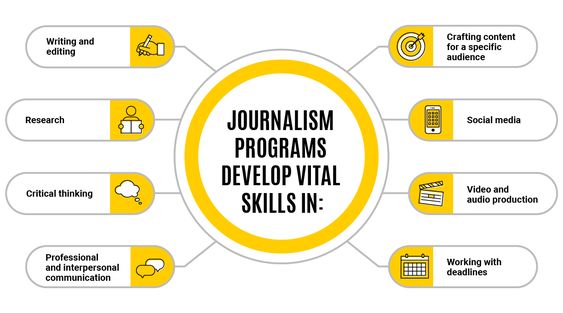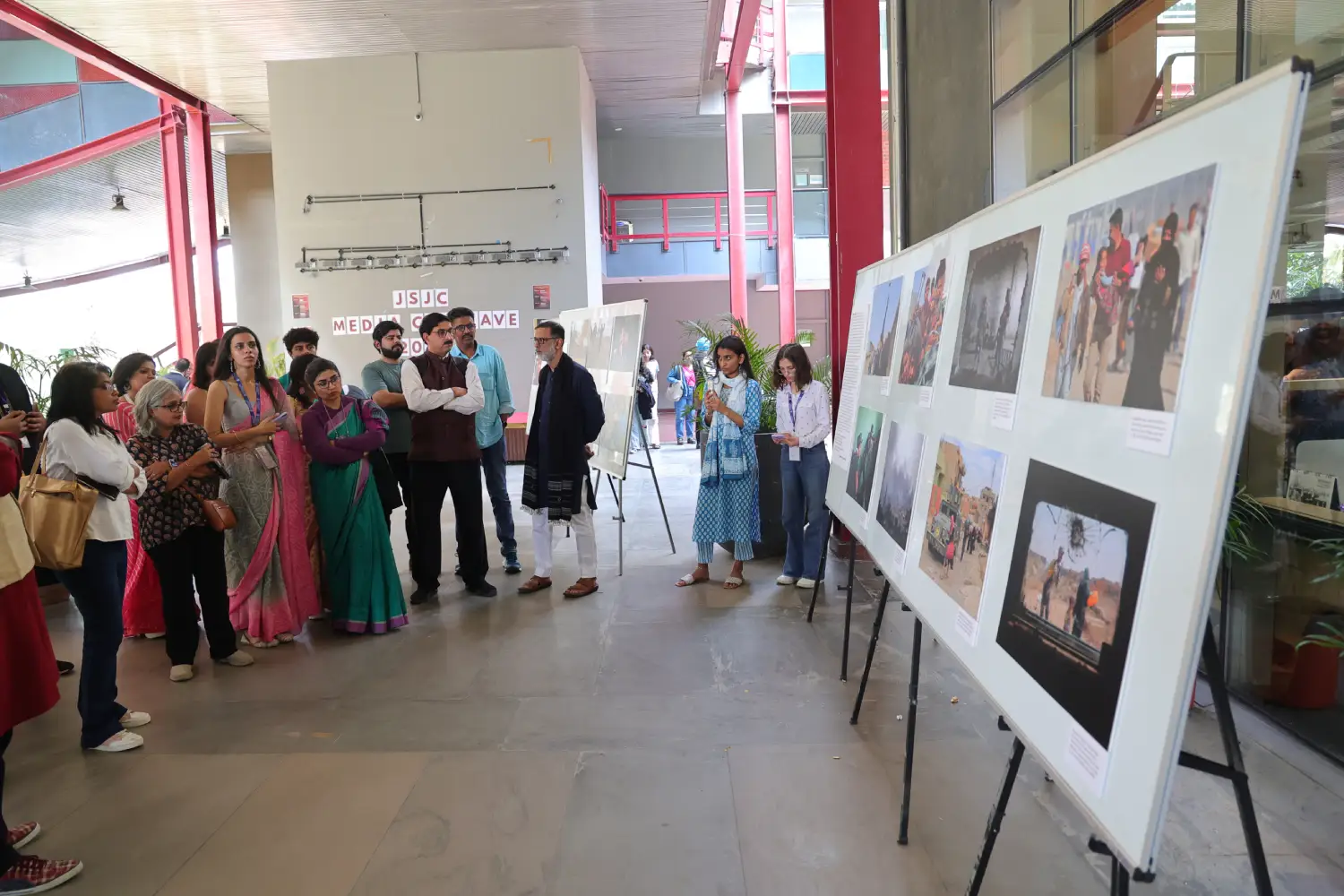Table of Contents
Journalism and media studies are exciting fields that offer a wide range of career opportunities for those passionate about storytelling, communication, and current events. In this guide, we will explore career in journalism and mass media, journalism career salary in India, and how to build a successful career in journalism and communication.
What is Journalism and Media Studies?
Journalism and media studies refer to the study of gathering, assessing, and presenting news and information to a wide range of audiences through various media channels. It encompasses various aspects of mass communication, including print, broadcast, and digital media. The field involves developing skills in research, writing, editing, photography, videography, and multimedia production to create engaging content that informs and entertains the public.
Types of Roles and Jobs in Journalism
Pursuing a career in journalism and mass communication in India offers a variety of career options, including traditional reporting, digital media, public relations, and more. A career in journalism is dynamic and evolving, with the digital landscape offering new opportunities. Journalism is considered a good career in India due to its influential role in society and democracy. The journalism career salary in India can be quite rewarding, with the potential for growth as one gains experience. For those interested in specialized fields, a career in journalism and mass communication in India provides a platform to explore niches like sports journalism, which is gaining prominence due to the country’s focus on sports development and research.
There are several roles and career options in journalism and mass communication, each with its unique responsibilities and requirements. Some of the most common roles include:
- Reporter: Reporters are responsible for gathering information, conducting interviews, and writing articles for publication. They may cover a variety of topics such as politics, crime, entertainment, sports, or business.
- Editor: Editors review and revise written content to ensure accuracy, clarity, and coherence. They may also be involved in planning and coordinating the layout of publications, as well as managing staff writers and freelancers.
- Anchor/Presenter: Anchors and presenters host television or radio shows, introduce stories, interview guests, and providing commentary on current events.
- Photographer/Videographer: Photographers and videographers capture images and footage to accompany news stories. They may work independently or in collaboration with reporters and editors.
- Social Media Manager: Social media managers manage the online presence of news organizations, creating and curating content for various platforms, and engaging with readers and followers.
- Content Writer: Content writers create articles, blog posts, and other written material for websites, companies, and organizations.
- Broadcast Technician: Broadcast technicians operate equipment and maintain technical systems necessary for television and radio broadcasts.
- Public Relations Specialist: Public relations specialists work with clients to build and maintain their reputation through media releases, press conferences, and other communications strategies.
- Sports Journalist: Sports journalists report on local and national sporting events, interview athletes, and provide analysis and commentary on games and trends.
- Science Journalist: Science journalists report on scientific discoveries, breakthroughs, and issues, making complex concepts accessible to a general audience.
Career Scope in India
In India, there is a growing demand for skilled journalists and media professionals. With the rise of digital media, there are numerous opportunities for aspiring journalists to pursue careers in online reporting, social media management, and content creation. Here are some potential career in Mass Communication paths-
- Print Journalism: Newspapers and magazines continue to thrive in India, offering opportunities for reporters, editors, and columnists.
- Electronic Media: Television and radio stations require anchors, producers, scriptwriters, and camera operators.
- Digital Media: Online news portals, blogs, and social media platforms need content creators, copyeditors, and social media managers.
- Corporate Communications: Companies and organizations seek public relations specialists to manage their brand image and communicate with stakeholders.
- Freelance Writing: Freelance writers can contribute articles, blog posts, and features to various publications and websites.
- Research and Academia: Those interested in teaching and research can pursue careers in journalism schools and research institutions.
How to Start a Career in Journalism and Communication
To succeed in journalism and communication, you should develop a strong foundation in writing, critical thinking, and communication skills. Here are some steps to help you get started:
- Earn a relevant degree: Pursue a bachelor’s or master’s degree in journalism, mass communication, English, or a related field to gain a solid understanding of journalism principles and practices. Jindal School of Journalism and Communication can help you build a strong foundation in the field of journalism and communication studies.
- Gain practical experience: Participate in internships, volunteer opportunities, or campus media organizations to build your portfolio and gain hands-on experience.
- Stay up-to-date with industry trends: The journalism industry is constantly evolving, so it’s important to stay informed about the latest trends and technologies. Follow industry leaders and news sources on social media, attend conferences and workshops, and read industry publications to stay up-to-date.
- Consider earning a graduate degree: If you want to specialize in a particular area of journalism or advance to leadership positions, consider earning a graduate degree in journalism or a related field. A graduate degree can also help you develop advanced research and writing skills, which can be valuable in any career path.
- Learn audio and video production skills: With the increasing importance of multimedia storytelling, learning audio and video production skills can make you a more competitive candidate in the job market. You can take courses or attend workshops to learn about recording, editing, and producing audio and video content.
- Develop a personal brand: In today’s digital age, having a strong personal brand is essential for journalists. Create a professional website or blog to showcase your work, and establish a presence on social media platforms. Use these tools to promote your work, engage with your audience, and build your reputation as a journalist.
- Learn data journalism skills: Data journalism is becoming increasingly important, so learning how to work with data can help you tell more compelling stories and increase your job prospects. Take courses or attend workshops to learn about data visualization, coding, and statistical analysis.
- Consider working abroad: If you’re interested in international affairs, consider working abroad as a foreign correspondent or freelancer. This can be a great way to gain experience, expand your network, and broaden your perspective on global issues.
- Stay curious and open-minded: Finally, remember that journalism is a constantly evolving field, and the most successful journalists stay curious and open-minded. Keep learning new skills, seeking out new experiences, and pushing yourself outside of your comfort zone to become a better journalist.
 Conclusion
Conclusion
In conclusion, a career in journalism can indeed be rewarding and fulfilling. It demands hard work, dedication, and adaptability to the ever-evolving media landscape. Career in Journalism after Graduation: Graduates can start their journey in journalism as reporters, content writers, or media researchers, and gradually climb the ladder with experience and further qualifications.
Is Journalism a Good Career in India?: Yes, journalism is a respected and impactful career in India, with the potential for a good salary and the opportunity to contribute significantly to society and democracy. Stay committed to continuous learning, networking, and self-improvement to excel in the field of journalism. Good luck on your journey to becoming an exceptional journalist!







